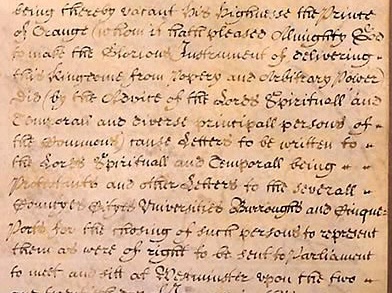The English Bill of Rights was signed into law in 1689 by William III and Mary II of England. Many historians view the bill as a major stepping stone to modern human rights texts. The bill limits the power of the monarchy and outlines several constitutional and civil rights, including freedom of speech in Parliament and the right to bear arms for self-defense. Its authors were likely inspired by philosopher John Locke, who believed that the role of the government is to protect the ‘natural rights’ of its citizens.
By creating a constitutional monarchy, the document strengthened the rights of the individual and greatly weakened the power of the king and queen, leading to the largely ceremonial role of today’s British Royal Family.
Woven Teaching
Order a free human rights poster for your classroom!
You Have the Right To… is a brand new poster that Woven Teaching has created for your classroom. Help students learn about the 30 Articles of the Universal Declaration of Human Rights. Learn more >
News
March 31, 2025
Check out the March 2025 edition of Human Rights in the News, Woven Teaching’s monthly collection of important human rights stories from around the world. Topics include protections for children in Louisiana and the broken ceasefire in Gaza.
October 22, 2024
Woven Teaching’s latest resource, Defending Democracy: Lessons for Building Resilience and Taking Action, is now available!
Inspired by Timothy Snyder's, On Tyranny: Twenty Lessons from the Twentieth Century, the curriculum’s 15 lessons encourage civic engagement and global citizenship, and emphasize critical thinking, media literacy and community-building. Download >
